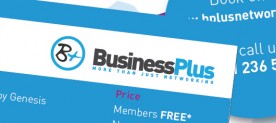
Social Media Basics for B2B Marketing
The use of Social Media is an excellent way for businesses to reach out to their customers but some companies still remain unsure.
B2B organisations should at least be involved in communities and social networks where their customers already are. Here is some basic information to help SME’s that want to know more about Social Media and the key platforms that may be relevant for their marketing activity.
What is Social Media:
Social media describes the online technologies that people use to share opinions, insights, experiences, and perspectives with each other. It can take many different forms, including text, images, audio, and video. Social Media helps businesses reach their customers, prospects, suppliers, employees and other stakeholders. B2B organisations should at least be involved in communities and social networks where their customers already are.
How to maximise B2B marketing through Social Media:
Before investing in social media marketing it’s important to set out a clear strategy, be clear about what success looks like for your organisation as its unlikely to be +500 connections but more about generating good quality leads. Agreeing objectives and a plan that sets out how to achieve these and measure your activity is vital. To find out more about social media for Business to Business organisations please contact @WhalePod
The Basics:
Here is a basic overview of the most popular Social Media platforms that you may want to think about using;
LinkedIn:
LinkedIn is a social media network that is specifically built for professionals that focus on developing business relationships. If your business doesn’t have a company profile on LinkedIn, it’s missing out on excellent connection opportunities. LinkedIn company profiles allow businesses to highlight their products, services and available job opportunities, facilitating outreach to new talent and partners. Develop an active presence on your company page by posting press releases, relevant blogs, corporate literature and event announcements. This will increase your brand’s visibility on the network and engage the attention of business users. Marketers can also take advantage of paid promotions through LinkedIn Ads that target specific demographics, industries and locations, capturing new leads. In terms of B2B marketing, if you just wanted to use just one platform LinkedIn would be the best one to use.
Twitter:
Twitter plays a big part in regard to B2B communication. It may be a fast-paced, short-form communication channel, but that enables businesses to make consistent, repeated impressions on other industry members. Business professionals are active on Twitter, using the network to discover industry news, events and other relevant content. The expansive nature of Twitter makes it a great place to develop new business connections.
Facebook:
Facebook has more than 750 million users. The social network has become a representative sample of the world’s population. It is usually used by consumers but it can also be just as affective for marketing businesses. As a company selling to other companies, Facebook serves as an important tool for generating leads and nurturing customer relationships. Facebook is good for B2b marketing as you can build a fan base, share engaging content, photos and videos, capture leads and contact information. You can amplify through ads, make it personal and fun, and segment and target to ensure you are reaching the right customer profile. Although Facebook is a proven consumer marketing tool it’s not normally the first choice for B2B companies.
Google+ :
Google+ is important for B2B marketing primarily because of the network’s SEO implications. Establishing a detailed company page and maintaining an active presence can boost your company’s placement in the Google+ search rankings, promoting visibility and credibility of your brand. Google+ has become the world’s second largest social platform, meaning that your competitors and potential partners are likely present themselves on here. So Google+ is not one to be left out …



